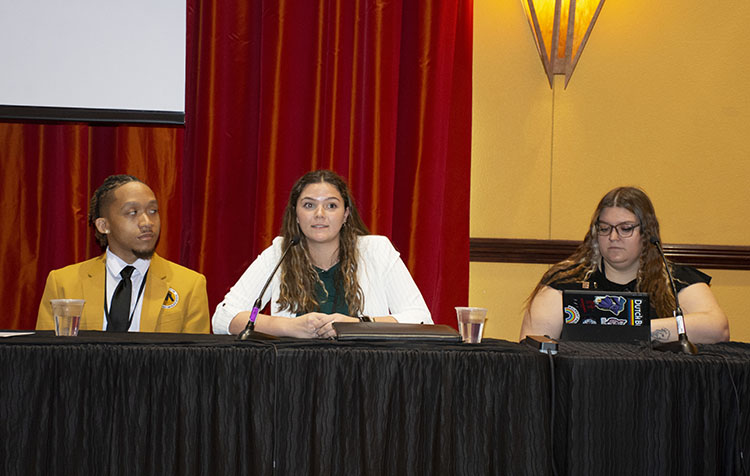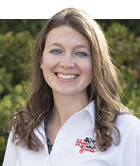
Some words are hard to define, and sustainability is certainly one of them. This buzzword is often used by both agriculturalists and the general public, but the meaning of sustainability varies due to so many factors, including a person’s priorities, where they live, and their stage of life.
Most sustainability goals focus on the future; farmers and agricultural companies are taking steps now to improve the earth in the long run. But what, exactly, does the next generation see as concerns for a sustainable future? During a panel discussion at the Sustainable Agriculture Summit held in Glendale, Ariz., three college students conversed about this topic.
For Emmanuel Wallace, a master’s student at Tennessee State University studying environmental sciences, his top sustainability concern comes from personal experience.
“One issue I am very passionate about is food insecurity,” Wallace shared. “I grew up in Memphis, in a food desert. Oftentimes, it was easier for me to go to a corner store versus a grocery store for fresh and affordable produce.”
He continued, “As I get older, I want to make sure future generations have access to healthy, fresh produce.” This passion led him to focus his master’s degree research on food insecurity.
Shelby Orton, a senior at North Carolina State University majoring in biological and agricultural engineering technology, said she is most motivated by protecting and improving soil health. “The soil is our foundation for agriculture, throughout the country and the world. Good soil is very valuable for agriculture,” she said. “Taking into consideration how nutrients, water, and living organisms make their way through soils is really important.”
For Shelby Humbarger, a senior majoring in agricultural technology management and education at Arizona State University, a few sustainability concerns rise to the top, including air pollution and water conservation. Growing up in Arizona, she has experienced firsthand warnings to not go outside in hot weather due to air pollution and the state’s ongoing efforts to conserve water.
Deforestation is another potential problem Humbarger sees for the future. “Where do we put everyone and not ruin the ecosystem for animals and for ourselves?” she asked rhetorically.
When asked to define sustainability, Humbarger answered with a question, asking “How can we better ourselves and the earth in the long term?”
Wallace said, “Sustainability means using what resources we have on hand without over depleting the earth’s resources. It means taking care of us plus animal and earth health.”
Orton added, “To me, sustainability means focusing on long-term goals and solutions rather than the here and now, quick results. Long-term sustainability means sustenance, and short-term solutions are not going to lead to sustenance in the future; we need to focus on long-term goals and impacts.”
While all three of the students are passionate about the environment and a sustainable future, they acknowledged that not all their classmates feel the same way or have the same understanding. Wallace noted that sustainability is a taboo topic to some people, but he encouraged the audience members to provide exposure to these pressing issues for students.
Similarly, Orton said it is very inspiring and empowering when students can hear from and learn from industry representatives working in this space. “We need people who will provide mentorship and who are willing to build bridges,” she said.
Humbarger also encouraged the audience to share their passion for sustainability. “Advocate for climate change and sustainability. Advocate for what you believe in. Making sure students know about these concerns can truly make a difference,” she said.
As Humbarger, Orton, and Wallace displayed, there is a group young people filled with passion and concern about the future who want to help agriculture work toward its sustainable goals. Including them in current sustainability conversations could lead to a brighter outlook for all of us.

The author is the senior associate editor and covers animal health, dairy housing and equipment, and nutrient management. She grew up on a dairy farm near Plymouth, Wis., and previously served as a University of Wisconsin agricultural extension agent. She received a master’s degree from North Carolina State University and a bachelor’s from the University of Wisconsin-Madison.